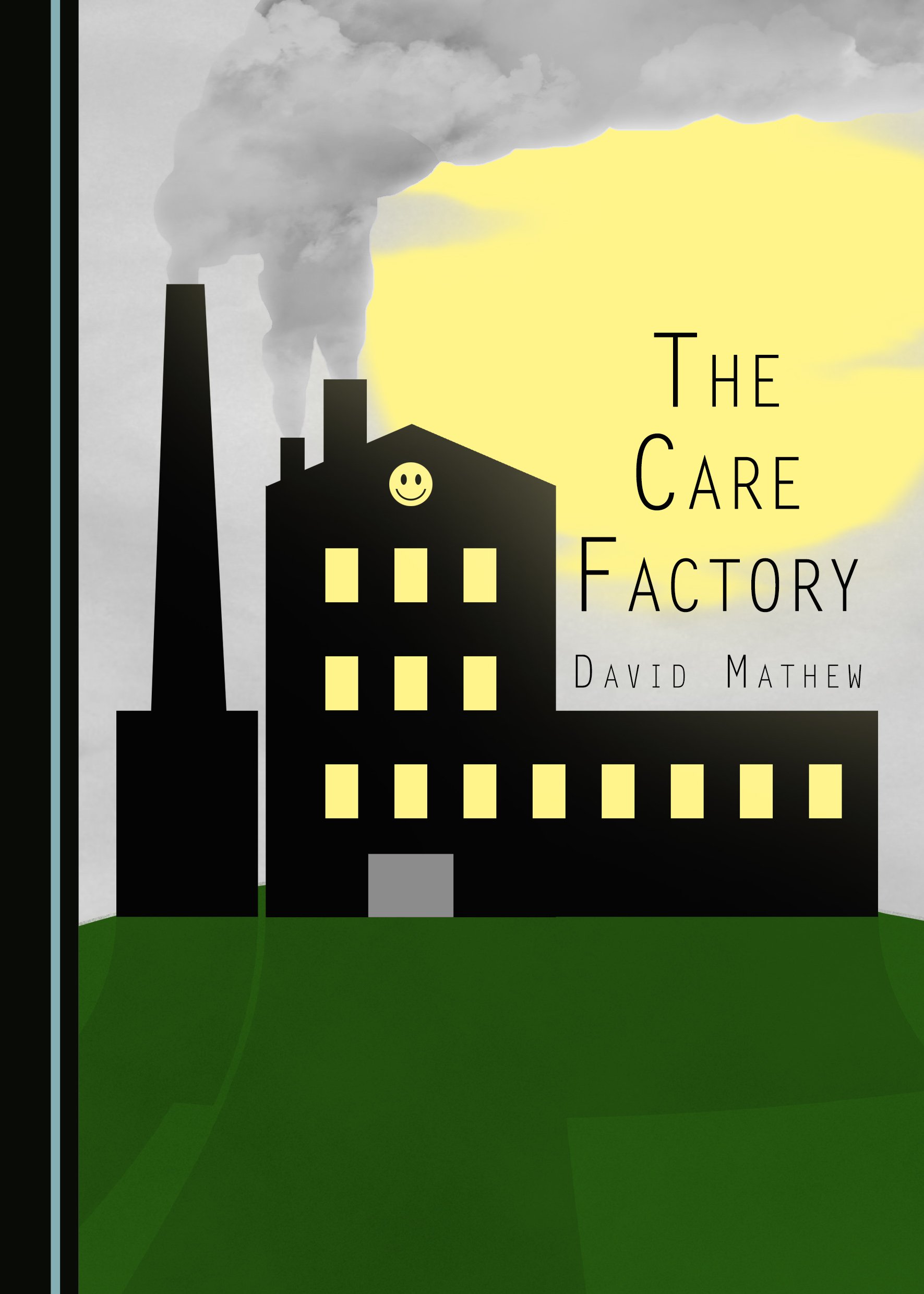The Care Factory
What is care?
The Care Factory consists of six essays, each of which is an invitation to the reader to form an opinion on what care happens to be. Each chapter looks at care in a different setting, and a variety of psychoanalytic frameworks are employed on which to hang arguments.
The eponymous first chapter investigates undergraduate courses in nursing and midwifery that have care on the syllabus. Is it possible to teach care? What if the person teaching care is not someone who cares?
The second chapter is ‘Banquet of Crumbs’. If care can be experienced in any setting and at any time, is there anything that happens to those who care that we might regard as generic? What does caring do to the practitioners who care?
The focus of ‘The Breaking of Wings’ is prisons and secure settings for children and adolescents. How do such institutions endorse and exhibit care?
In ‘Nostalgia’s Engine’, the focus is on the care generated by successful group assimilation and the manufacture of nostalgia. Using the example of the punk movement of the 1970s, this chapter describes how organisations offer their participants communities of care, irrespective of their outward appearance of hostility.
‘Caring for Our Creations’ is about writing, and about one’s responsibilities for what one drafts into existence. This chapter is not so much about a narrative of care as the care of a narrative.
Finally, ‘Take Care: A Coda’ represents a lesson on how one cares for oneself in an atmosphere of tension and bereavement anxiety.
David Mathew is the author of Fragile Learning: The Influence of Anxiety (2015) and seven full-length works of fiction. He works at the University of Bedfordshire, UK, and as an independent researcher and occasional journalist. He also publishes under the name Tom Lockington, and in either guise he enjoys travelling, music, literature and hiking. His research interests often circle around psychoanalysis, pathologies, education and systems of control. In addition, he edits the Journal of Pedagogic Development and teaches academic writing.
"Mathew’s writing works on a number of different levels. On the one hand, The Care Factory is readable yet informative. On the other its cross-disciplinary approach cannot help but challenge the reader, encouraging them to take part in the unfolding narrative. For me, its varied subject matter, underpinned by the notion of care, provides a critique of a world beset by neoliberal ideology. [...] What is important about this book is that Mathew takes the machination of care from the workplace and places it where it should be: in the creative, the cultural and the everyday."
Dr Mike Dines Culture, Pedagogy & Society, published online 09.02.2017
"This original and important study encourages us to question a concept that is all too often taken for granted. The interviews and discussions in The Care Factory show us how the word “care” is the bearer of so many assumptions, prejudices and beliefs that it would be irresponsible not to reflect on it."
Darian Leader Author of What is Madness?
"The Care Factory is a timely, honest and, at times, deeply moving book about “care”—what it is and what it is not. It draws on a range of eclectic sources to explore the multi-layered and contentious meanings of care, reflecting upon the implications of caring for others as paid work. The perspectives, experiences and insights of different professionals who provide care in its various forms are explored. Highly recommended."
Gail Kinman Co-author of Developing Resilience for Social Work Practice
"The Care Factory is a tour de force—readable, post-modern and knowing. The occasional inclusion of self-disclosure material is moving and emotionally robust; and the references to Mathew's fiction give the book a rounded meta-feel. It is terrific."
Paul Meloy Author of The Night Clock and psychiatric nurse
"Mathew’s writing style fosters an approach where the reader accompanies the narrative, and where he or she is subtly encouraged to work these issues out for themselves. Mathew is not telling you he knows the answers. Instead, emphasis is placed on the dynamism of theory and application. Reflection takes the place of polemics."
Dr Mike Dines British Journal of Educational Studies (review of Fragile Learning)
Buy This Book























